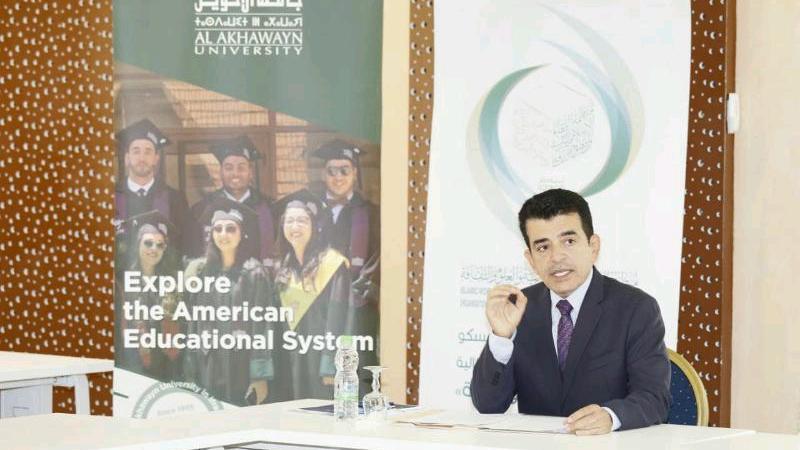
ICESCO DG: Foresight Most Efficient Way to Preserve Cultural Heritage

17 September 2020
ICESCO seeks to revive and entrench foresight thought in the Islamic world
Dr. Salim M. AlMalik, Director-General (DG) of the Islamic World Educational, Scientific, and Cultural Organization (ICESCO), reaffirmed that “the adoption of proactive and foresight skills is no longer a luxury. It is a strategic decision.”
“We live in a rapidly changing world and face immense challenges. We will not survive without studying its future in detail,” he continued.

The statement came as part of the DG’s address at the opening session of the two-day training workshop on strategic planning for decision-making. The event started today at Al Akhawayn University, Ifrane, Morocco.
ICESCO held the event, in cooperation with Konrad-Adenauer Foundation, to benefit several executive directors and teaching staff at the university.
Dr. AlMalik stated that the COVID-19 pandemic, along with the ensuing ambiguity and fears facing the future of humanity, revealed the systemic weaknesses in dealing with the challenges of foresight.
Foresight and planning require different and innovative methods and models to respond and address them, Dr. AlMalik stated.
In his address he specified that “foresight is not a new concept to the Islamic culture. Today, we face the challenge of reviving this heritage.”
ICESCO disseminates the foresight thinking and knowledge within the codes of ethics, which connect the current generations to future ones.
“It is evident that future foresight is one of the most efficient ways to preserve, develop, and support the cultural, intellectual, social, scientific, and economic heritage to achieve welfare and prosperity. Its importance even increases amid the scientific forecasts of the rise of poverty and illiteracy rates around the globe with the high demographic growth. The world population is expected to reach 9.7 billion people by 2050 and 11.2 billion people by 2100,” added ICESCO’s DG.
Dr. AlMalik also highlighted that foresight is a rational tool to overcome the prevailing ambiguity about the future, dispel fear because of crises, and bring hope, and urge people to invent new working means.
He also suggested teaching people lessons to build a brighter and more sustainable future, adding that ICESCO seeks to achieve these objectives throughout the Islamic world. The Organization employs peer-reviewed studies, scientific forums, and training sessions to build a better future.
Dr. AlMalik stressed that “a strong connection between foresight and the strategic dimension” will “provide the foundations for a collective mobilization and thinking, reflecting the participatory decision-making approach.”
This training is the start of ICESCO’s series of sessions to disseminate and entrench foresight thinking in the Islamic world. “The practice will ensure sustainable and knowledge dissemination,” commented the DG.





